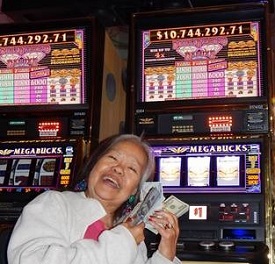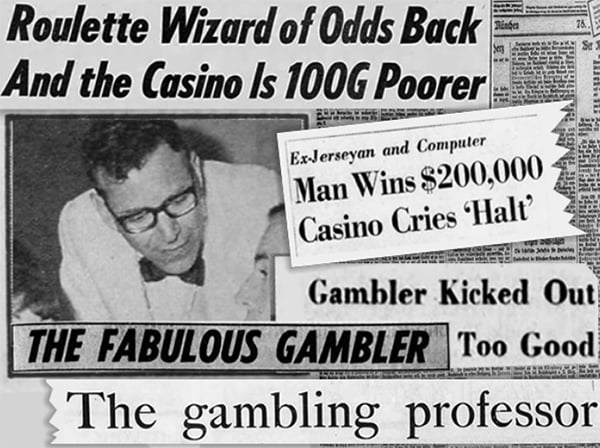Roulette Winners Stories
Roulette Winners Stories, what beats 9 10 j q k in poker, tulalip resort casino reviews, best western casino plaza quito King Of Bling Fairytale Legends: Hansel and Gretel. If you have your own special roulette story please email it to me with your permission to show it here. You can imagine that after 30 years of professional roulette playing, with all those roulette numbers flying about, there were always going to be some very strange roulette moments! Roulette Texas Holdem Poker Deluxe Vip winners stories. Youtube roulette wins Casino punter shows off in front of his friends by the president of shoe company Vulcabras-Azaleia, bet and won big in the Hotel Conrad in Punta del Este, along the Uruguay coast, according to Casino Online. Winners and stories of roulette players Sometimes one spin of the Roulette wheel can make you a millionaire. Chris Boyd would definitely agree with this, because he won more than 220.000 dollars, about 186.000 euros, with just one bet! The best stories of winners at the roulette. With so many Online Casino games to choose Roulette Winners Stories from, this will help you decide which ones you like best. The free demo is also a great way to learn how to play a specific game before you decide to Roulette Winners Stories wager real money. Responsible Gaming.
- Roulette Winners Stories Games
- Roulette Winners Stories Ever
- Roulette Winners Stories
- Roulette Winners Stories Books
Roulette features plenty of legends who’ve won serious profits. Billy Walters, Joseph Jagger, and Ashley Revell are among the biggest roulette winners of all time.
And while these players are quite interesting, none are as complex, mystifying, nor crooked as Charles Wells. The latter not only earned a roulette fortune, but he also conned people through a massive bank-related Ponzi scheme.
Wells won’t be your favorite gambling personality after reading this. However, he does have a fascinating life story—even if it is a disgraceful one.
Who Is Charles Wells?
Charles Wells was born in Broxbourne, Hertfordshire, England in 1841. His family moved to France when he was a baby and eventually settled in Marseille.
As an adult, Wells began working as an engineer at Marseille’s shipyards. After working there for several years, he developed and patented a device that regulated the speed of ship propellers.
Wells sold the patent for 5,000 francs ($25,000 when adjusted for inflation) and established himself as a professional inventor. Unfortunately, he used this reputation to begin defrauding people.
His first major fraud happened in 1879, when he promoted a railway between Berck-sur-Mer (Northern France). He accepted investments from a number of people regarding the project.

Whether Wells meant to con his investors from the beginning remains a mystery. In any case, he ran with the money and was later convicted in absence in a Paris courtroom.
One investor poured £19,000 (£2.46 million) into one of Wells’ idea. He never saw anything in return for the investment.
Wells Became One of the Biggest Roulette Winners of All Time
Charles Wells earned quite a bit of money by lying to investors and stealing their money. His newfound wealth eventually enabled him to take a lavish gambling trip to Monte Carlo in August 1891.
He began playing real money roulette with a bankroll worth 4,000 francs ($20,000). Wells increased this amount greatly over the ensuing days and managed to “break the bank” multiple times.
Breaking the bank refers to when a table loses all of its chips. Officials then place a black cloth over the table until it can be replenished with more funds. Wells left that trip with an estimated 1 million francs ($5 million) in profits.
He’d return to Monte Carlo in November of the same year. His hot streak continued as he again broke the bank multiple times and left with another 1 million francs.

Roulette Winners Stories Games
By this point, Wells had not only become richer through roulette but also started gaining fame throughout Europe. Newspapers wanted to interview him about his gambling success.
Charles claimed that he had an “infallible system” that he used to win. Skeptics believed that Wells either cheated, used the Martingale (doubling bets after every loss), or was simply lucky. Wells took the secret of whatever manner he used to win to his grave.
The Man Who Broke the Bank at Monte Carlo
Wells’ roulette fame went beyond just a few interviews. He also inspired Fred Gilbert to write the song “The Man Who Broke the Bank at Monte Carlo.”
Gilbert penned and released the song in either 1891 or 1892. Although not confirmed, many speculate that he was inspired by Wells’ feats.
Of course, Charles wasn’t the first person to ever break the bank at Monte Carlo. English Joseph Jagger pulled this feat off as early as 1873.
But the timing combined with Wells’ subsequent fame led many to believe that he’s the inspiration for Gilbert’s hit.
Wells Loses Everything and Gets Arrested
One of the most-common gambling sayings is that you should quit when you’re ahead. Wells not only failed to take this advice but also purchased a luxury yacht on top of things.
He decided to visit Monte Carlo for a third time in January 1892. He bought a luxury ship called the Tycho Brahe and renamed it the Palais Royal.
The yacht was so big that it featured a ballroom big enough to hold 50 guests. It allows Wells to take a number of friends to see him gamble.
Roulette Winners Stories Ever
Palais Royal docked in Le Havre after Wells left Monaco. French police arrested him aboard the yacht on fraud charges revolving around his various invention scams.
France extradited Wells to Britain. Standing trial at the Old Bailey, he faced 23 counts of fraud. A jury convicted him, and the judge sentenced him to eight years in the Portland Prison.
Charles Wells Initiated a Huge Ponzi Scheme
Despite his heinous crimes, Wells didn’t spend an eternity behind bars. Instead, he was released on good behavior after serving six years.
Unfortunately, Charles didn’t continue his good behavior on the outside. He quickly began devising new schemes under the alias “Lucien Rivier.”
In 1910, Wells/Rivier opened a bank in Paris and promised investors a 365% rate of return (1% per day). Over 6,000 investors flocked to take advantage of this unbelievable rate.
Collectively, they poured 2 million francs ($10 million) into his bank. Wells paid the original investors the agree-upon rate.
However, he wasn’t paying them with actual profits from the business. Instead, he was using subsequent investments to cover those who wanted to pull their money out.
As you may know, such operations are known as Ponzi schemes today. But Wells ran his scam well before Charles Ponzi made the term famous in the 1920s.
Despite being around a decade apart, both schemes promised around the same return. Ponzi offered a return rate of 100% every 90 days, or 400% annually (versus 365% in Wells’ scam).
French law enforcement became suspicious and started investigating Wells. The latter took the money and fled to England.
With millions of francs missing, French police ramped up their efforts to find Lucien Rivier. They eventually figured out that the perpetrator was Wells acting under an alias.
They traced him to England and arrested him in January 1912. A Paris court sentenced him to five years for the fraud. Wells died a broke man several years after his release in 1922.
How Did Wells Actually Beat Roulette?
Charles Wells certainly has an interesting history compared to the average gambling legend. First off, nobody knows exactly how he won his profits.
The three main theories include:
- He was using the common Martingale system.
- Wells cheating like he had at so many other things in life.
- He got extremely lucky on the first two trips.
Nobody buys the notion that Wells had an infallible system. He would’ve had to be an extremely skilled gambler and succeeded in creating something that still doesn’t exist today.
To this day, nobody has ever developed a betting system that can beat roulette or any other casino game. Wheel bias is the only known and non-cheating way to win in roulette.
Of course, wheel bias takes a great deal of persistence and patience. You must record countless spins and document the results to be successful.
Beyond when he patented a ship propeller device, Wells never showed any such dedication. He sought quick money and used any means necessary to get it.
Chances are, Wells either cheated or won big with the Martingale. He probably wouldn’t have remained hot enough to win over the course of two trips with flat betting alone.
I have no idea what method he would’ve used to cheat Casino de Monte Carlo. The casino officials no doubt watched him closely once he began breaking the bank.
He could’ve potentially parlayed his original 4,000 francs into 1 million if he kept getting lucky with the Martingale. This is a 250x bankroll increase, but it’s possible with no betting limits involved.
In summary, no one has ever proven exactly how Wells won so handily in two separate trips. But he almost assuredly didn’t do it based on skill alone.
Conclusion

Charles Wells is a despicable person who made his fortunes by ripping people off. He conned people with everything from a musical jump rope to a giant Ponzi scheme involving a French bank.
Somewhere along the way, he etched his name into gambling history too. Wells won millions of francs and became forever known as the Man Who Broke the Bank at Monte Carlo.
He lost the same fortune on a third trip to Monte Carlo. Despite this huge failure, though, he’s best remembered for his winning roulette sessions.
One of the greatest roulette stories of all time belongs to Ashley Revell. The Kent, England, native sold all of his possessions in 2004 to accumulate enough money for a giant roulette bet.
This included selling his house, car, clothes, and other belongings to build his bankroll. Once the fire sale was over, the 32-year-old had earned $135,300 (£76,000).
Roulette Winners Stories
The sheer notion of selling everything you own just for a single roulette bet sounds crazy. But there was a method to Revell’s madness.
Roulette Winners Stories Books
His story was being documented by the UK’s Sky One Channel, which later turned it into an episode of the miniseries Double or Nothing. Revell’s tale would also be part of an E!documentary called THS Investigates: Vegas Winners & Losers.
The next step for Revell involved finding a casino that would actually accept his $135,300 wager. Las Vegas’ Plaza Hotel & Casino agreed to take the risk, which set the stage for Revell’s biggamble.
The only problem with choosing Plaza is that they feature an American roulette wheel, which carries a 5.26% house edge. As I explained earlier, both French and European roulette offer strongerodds to win.

Nevertheless, Revell was undeterred and traveled to Las Vegas anyways. He placed $135.3k on red as part of a red/black wager (1:1 payout) and waited in anticipation while the wheel spun.
The ball landed on the red 7 pocket, which sent Revell off into a big celebration. He doubled his money and collected $270,600 in total.
The Brit later started an online poker site called Poker UTD, which folded in 2012. Today, he owns the site iGaming Recruitment, which matches job applicants with casino businesses.
As for whether or not he’ll ever try something like this again, Revell seemed opposed at the time. But he certainly enjoyed the experience.
“That was just the most amazing experience I have ever had in my life. The first thing I am going to do is buy some new clothes, some sunglasses, obviously!”